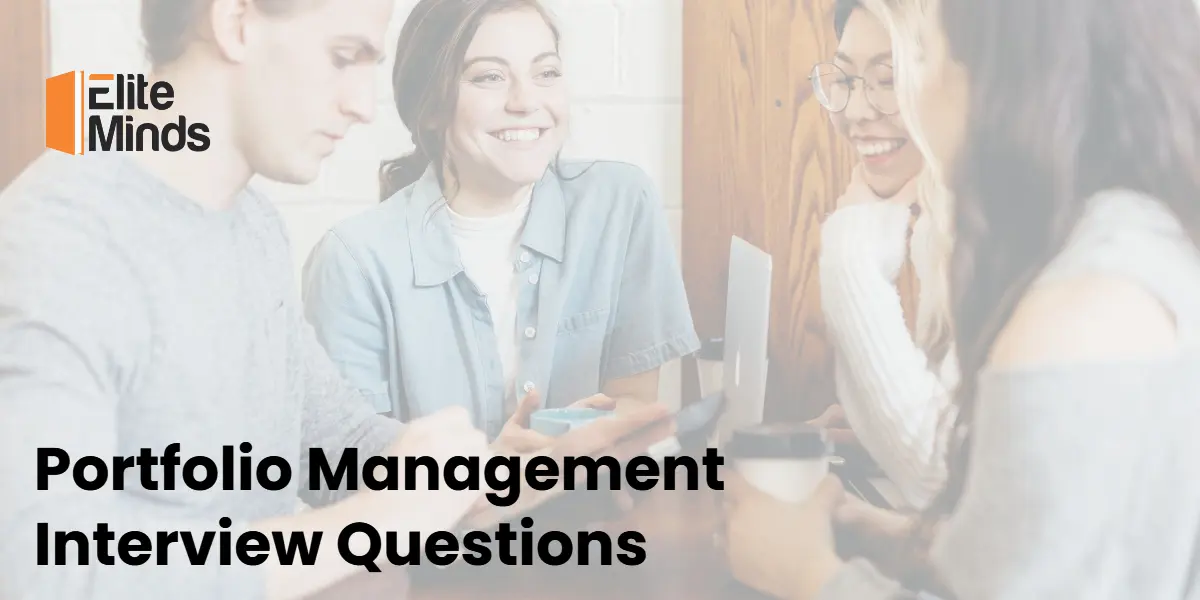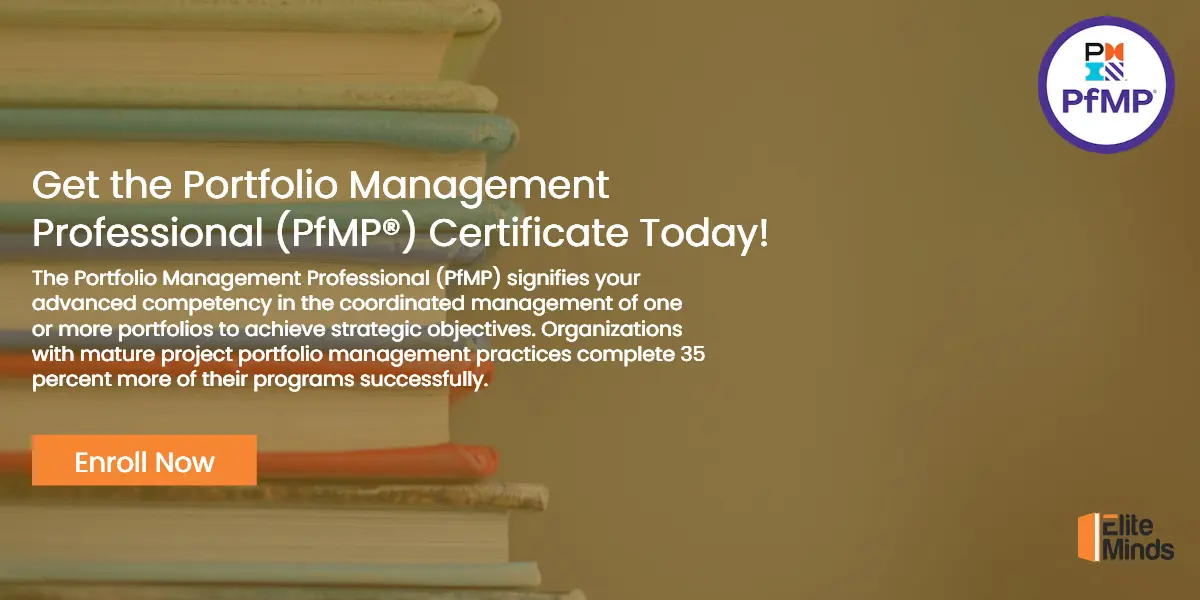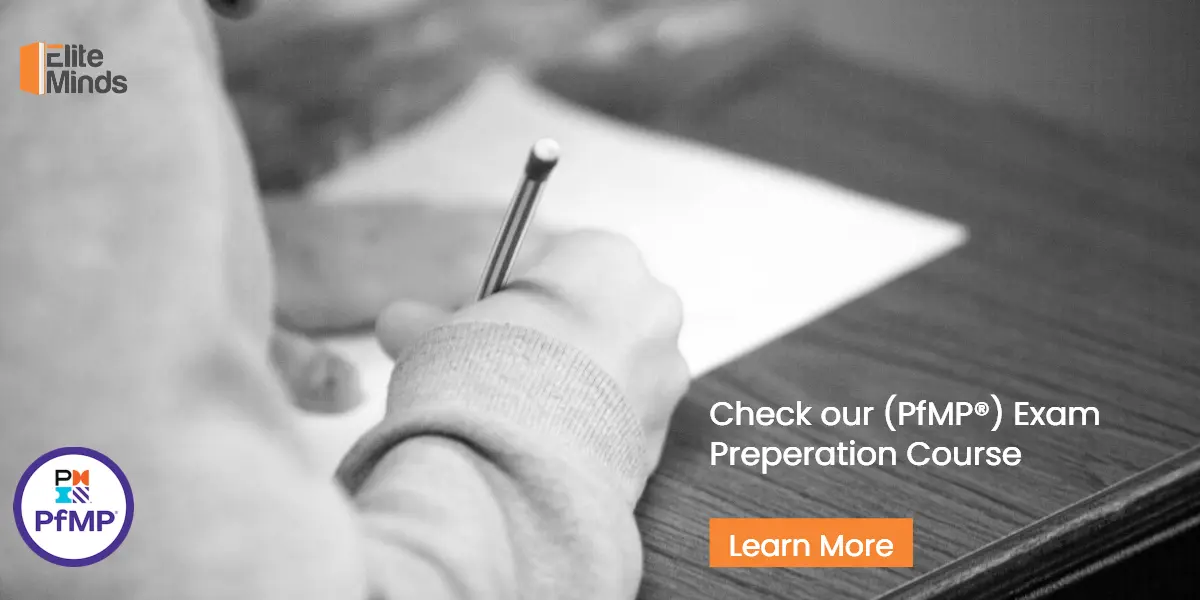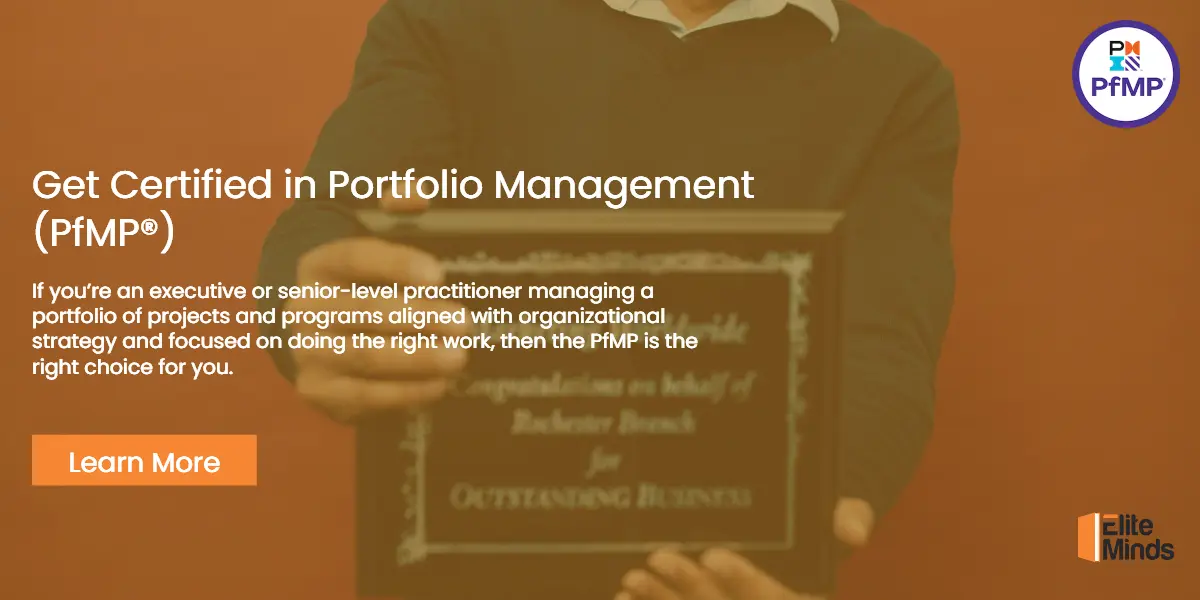
Portfolio management is the centralized management of one or more portfolios to achieve strategic objectives. It is the application of portfolio management principles to align the portfolio and its components with the organizational strategy. In a portfolio management interview, you will be asked questions that will test your knowledge of people skills, technical understanding of portfolio management practices, organizational strategy, and response to specific scenarios.
What is a Portfolio Manager Job?
Portfolio management, program management, and project management are domains of the organizational project management framework for managing the capability to deliver value. Portfolio managers have the responsibility for the establishment and implementation of portfolio management. Where program and project managers primarily focus on “doing the work right,” the portfolio manager’s primary focus is on “doing the right work,” and portfolio governance enables the “right work” to be performed at the right time and with adequate resources allocated.
Portfolio managers often play a number of important roles, quite often those of architect, enabler, and facilitator of portfolio management principles, processes, and practices, as well as the role of portfolio analyst. As architects, portfolio managers work with their organizational counterparts to evaluate the portfolio management plans, assess and define needed skills, design appropriate processes, and adjust these processes accordingly.
As enablers, portfolio managers may seek ways to continually improve the applied portfolio management processes and adjust portfolio components toward better alignment with changes in strategy to ensure continual relevance to the organization.
Organizations with mature project portfolio management practices complete 35 percent more of their programs successfully. They fail less often and waste less money according to our 2015 thought leadership report, Delivering on Strategy: The Power of Project Portfolio Management.
Getting through a portfolio management interview successfully is both an art and a science. There are a lot of unknowns, but focusing on key areas or competencies of portfolio management and giving the right answers to the questions based on them in the interview helps you get selected. When you do not know what to expect, a portfolio manager interview can be frustrating. It is a good thing to know that going through a few common questions can help you prepare for your interview. In this blog, we will be covering 30 portfolio manager interview questions and answers.
25 Portfolio Management Interview Questions
Here are a few portfolio management interview questions that you are likely to encounter in your interview as a portfolio manager. Use this list for inspiration when preparing stories based on your real portfolio management experience.
- How do you define a Portfolio?
This is a very basic question that interviewers will usually start with. A portfolio is a collection of projects, programs, subsidiary portfolios, and operations managed as a group to achieve strategic objectives. The portfolio components, such as programs and projects within the portfolio, are quantifiable (e.g., identified, categorized, evaluated, prioritized, authorized).
- How do you define organizational strategy? And What is its relationship with Portfolio management?
An organizational strategy is composed of goals and policies that provide the overall direction and focus of the organization, and plans and actions to achieve those goals. An organizational strategy is an action plan for how a company will achieve its long-term goals. Developing an organizational strategy should result in a business plan that aligns with the company’s mission and business goals. Portfolio management is an integral part of the organization’s overall strategic direction. It is the vehicle through which change initiatives and strategic investments are undertaken to realize strategic goals and objectives. Linking portfolio management to strategy balances the use of resources to maximize the value delivered in executing programs, projects, and operational activities.
- What is the relationship of the organizational project management (OPM) and portfolio management?
Portfolio management, program management, and project management are domains of the organizational project management framework for managing the capability to deliver value. Organizational project management (OPM) is a framework in which portfolio, program, and project management are integrated with organizational enablers in order to achieve strategic objectives. OPM enables an organization to leverage its results and implementation success, and supports a strong organization within a competitive and rapidly changing environment.
- In your opinion, what are the key areas of expertise a portfolio manager should have?
For the portfolio manager to succeed in this role, he or she should be able to form and lead expert teams, and have expertise in all of the following areas: strategic management, portfolio management tools and techniques, systems thinking, stakeholder engagement, risk management, and organizational change management.
- From a practical perspective, what is the relation among Programs, Projects, and Portfolio?
This is a basic portfolio management interview question; however, it tests your understanding of project and portfolio management concepts. The relationships among portfolios, programs, and projects are such that a portfolio refers to a collection of projects, programs, subsidiary portfolios, and related operations managed collectively as a group to achieve strategic objectives. The relationships among these components have the potential to bring value to the organization through portfolio management.
Programs are grouped within a portfolio, and they include related projects, subsidiary programs, and program activities managed in a coordinated manner to obtain benefits not available from managing them individually. Individual projects that have strategic importance, whether within or outside of a program, are considered part of a portfolio.
- As a portfolio manager, what should you expect from the Portfolio Management Office (PMO) in your organization?
Well, you should show the interviewer in this question that you know the different types of portfolio management offices. A portfolio management office (PMO) is a group or department that defines, maintains and ensures portfolio management standards across an organization. The portfolio management office has a focused and specific responsibility for the centralized management and coordination of the portfolios that lie within its domain. The responsibilities of this office may range from providing portfolio support functions to actually managing the portfolio.
- When you start a Portfolio, for what purpose you should conduct strategic alignment analysis?
While defining a portfolio, strategic alignment analysis is an important technique to use. The strategic alignment analysis focuses on the new or changing organizational strategy and objectives. The analysis also indicates where there are gaps in focus, investment, or alignment within the portfolio. Portfolios or inventory of work must be validated against organizational strategy updates to ensure consistency with the evolving organizational mission, goals, and objectives.
- What are the key components of a Portfolio Strategic Plan?
To create the portfolio strategic plan, the portfolio vision and objectives are defined to align with organizational strategy. The portfolio strategic plan key contents are: Portfolio vision and objectives; Organizational structure; Measurable goals and guidance; Allocation of funds to different types of initiatives; Portfolio benefits; Risk tolerance; Prioritization model; and required resources.
- What is the purpose of using the capability and capacity analysis in portfolio management?
This is one of the techniques heavily used by portfolio managers. Capability and capacity analysis is performed to understand how much work is able to be performed based on the resources available (capacity), as well as the ability of the organization to source and execute the selected portfolio and to determine the constraints generated by certain skill set limitations, financial constraints, and other asset capacity factors (capability).
- What is the document you should develop to authorize your portfolio?
A portfolio charter is the document that formally authorizes the portfolio manager to apply portfolio resources to the portfolio component. The charter provides the portfolio structure including the hierarchy and organization of the portfolio, sub-portfolios, programs, projects, and operations and forecasts how and when the portfolio will deliver value to the organization.
- What is a Portfolio Roadmap?
The portfolio roadmap should provide the high-level strategic direction and information in a chronological view for portfolio management execution and enable dependencies within the portfolio to be established and evaluated.
- How do you define the Portfolio governance? And why it should be created?
Portfolio governance is a set of interrelated organizational processes by which an organization selects and prioritizes components, and allocates limited internal resources to best accomplish organizational strategy and objectives.
The portfolio governance model defines the way the organizational assets and resources are planned to be managed within the portfolio according to the specific environment of the organization. It establishes and tailors the decision-making rights and authorities, responsibilities, rules, and protocols needed to manage progress based on portfolio risk towards the achievement of their organizational strategy and objectives.
- In your opinion, what is the best description of the portfolio components performance measures and targets?
There are broad range of answers that you can provide the interview with. The best is that the measures and targets should be SMART. Performance measures and targets (metrics) are set at the portfolio component level and then rolled up to the portfolio level to determine overall portfolio impact. In order to develop meaningful measures, a guideline (often referred to as SMART) is used to ensure performance measures are: Specific, measurable, attainable, realistic, and time-bound.
- What is the Portfolio Efficient Frontier?
As a portfolio manager, you should be aware of this performance management tool. As per the standard for portfolio management, the efficient is based on Harry Markowitz’s Modern Portfolio Theory and gives the decision makers the analytical tool to optimize portfolios given the resource constraints. The portfolio, is referred to as “efficient” if it has the best possible expected level of return for its level of risk (usually proxied by the standard deviation of the portfolio’s return). Diversification may allow for the same portfolio expected return with reduced risk. It should be noted that efficient frontiers are not static, and organizations should monitor cost-benefit ratios on a continual basis.
- What elicitation techniques did you use to identify your portfolio stakeholders and determine their communication needs?
As portfolio stakeholders and stakeholder communication requirements change over time, it is important for the portfolio manager to engage with stakeholders to ensure their needs are being met and are aligned with the communication management plan. This may be achieved through interviews, questionnaires/surveys, stakeholder meetings, and lessons learned sessions on the effectiveness of communication.
- What is a Dashboard? Give examples of Portfolio dashboards you created?
Dashboards are an effective way to communicate multiple messages on portfolio status and trending simultaneously. Dashboards can show portfolio risks, schedule status, financials, and portfolio issues.
- How do you tackle uncertainties in your portfolio?
Uncertainty is a lack of complete certainty. Best approach to manage uncertainty is through proactive risk management, and identifying potential threats that might occur as a result of uncertainty. Uncertainty is inherent in the nature of projects, programs, and portfolios.
- In portfolio risk management, what is the purpose of using the weighted ranking and scoring techniques?
Weighted ranking and scoring techniques may be used by the portfolio manager and governance boards to assess the risks in multiple portfolios and the overall structure of the portfolios. Such rankings and scoring are applied to any technical and management risk details during this process. The ranking or scoring is provided by any group or individual with specialized knowledge or training and is available from many sources.
- What are the key components of the portfolio risk management plan?
The portfolio risk management plan describes how risk management is structured and performed in the portfolio. It is a subsidiary plan of the portfolio management plan and includes the following: Risk methodology, roles and responsibilities, risk measures, frequency, and portfolio risk categories.
- How well are you prepared to manage a remote team?
Some organizations often choose their teams from a global workforce, and the portfolio manage is expected to manage teams remotely. You should be equipped with the knowledge and skills to work with team members virtually. It calls for a different management technique. Your answer to this portfolio manager interview question should clearly describe the portfolio management methodology you may choose to manage people and resources in a remote environment.
- What is the purpose of using sensitivity analysis?
Sensitivity analysis helps to determine which risks have the most potential impact on the portfolio. It examines the extent to which the uncertainty of each element affects the respective objective when all other uncertain elements are held at their baseline values. One typical output of sensitivity analysis is the tornado diagram; this is useful for displaying which parameters lead to a high degree of variability and which have less effect
- What’s your leadership style?
There are several leadership styles that the portfolio manager can utilize, each with its benefits and drawbacks. When it comes to portfolio management, it's impossible to avoid bringing up a leadership style. A portfolio manager may have to choose how they lead depending on the portfolio, from top-down to servant leadership.
- What is your approach regarding managing the performance of your team?
This portfolio management interview question will test your leadership skills. Be thorough about your daily tasks when it comes to managing your portfolio management team’s performance—for example, perhaps you hold weekly strategy meetings. You’ll also want to provide specific examples of how your management style has resulted in positive team performance.
- How should you deal with an underperforming team member?
This question should be answered based on your own experience; you should deal with an underperforming team member as follows: Informal conversation, understand underlying cause, offer help, possibility of role change, replace the underperforming resource.
- How do you motivate team members?
Motivation is a key leadership skill. It’s crucial as a leader to not only ensure your team stays on the right track but also gets motivated about the portfolio they’re working on. Maybe you give praise for a job well done as a form of motivation. As long as you can demonstrate past examples of how you’ve motivated team members, there’s not a right or wrong answer here.
Get Certified in Portfolio Management
Being a portfolio manager isn't an easy job, it can be hectic for many. However, a portfolio manager doesn't necessarily require certification, but getting the PfMP can definitely get you a better paycheck. With this certification, you will be able to think on portfolios from different aspects, strengthening your overall analysis.
Taking the PfMP exam isn't going to be a piece of cake, there are certainly many things you must know before taking the exam. And here, we will be discussing everything you need to know about the PfMP certification exam. Therefore, without further ado, let's get straight into the prime discussion. PMI or better known as Project Management Institute of the United States is an accreditation body for the PfMP certification exam. The organization is one of the leading not-for-profit professional associations, which was founded in 1969.
Before diving into further details, it is vital to start the discussion with the exam structure for the PfMP certification exam. The exam will have a total of 170 questions, and all will be multiple choice questions. Candidates are expected to complete their exam within 4 hours. Though the exam is challenging, the more challenging part is getting your PfMP exam application approved from the panel. To maintain your PfMP, you must earn 60 professional development units (PDUs) in portfolio management topics every three years.
The exam fees for members are $800, whereas when it comes to a nonmember, the exam fees go a little higher, up to $1,000. The best part about this exam is that you can take this according to your convenience. The exam is only available in person, so you need to search authorized testing centers in your city.
Who is Eligible for the PfMP Certification?
Before signing up for the exam, it is crucial to know its eligibility criteria and the prerequisites for taking a PfMP exam. Two types of candidates can qualify for taking this examination. You can qualify for this exam if you have a secondary degree; this means that if you have a high school diploma, associate’s degree, or the global equivalent, then you can take this exam for PfMP certification.
However, you should possess a minimum of 96 months of professional business experience within the last 15 years you will also need 84 months of project portfolio management experience. The second type of candidates that qualify for the exam is those with a four-year degree. This four-year degree can be a bachelor’s degree or the global equivalent. If you have a four-year degree, then the next thing you will acquire is 48 months of project portfolio management experience, in addition to the 96 months of business experience required.
The Process of Getting Certified
Now that you know the eligibility criteria for the exam along with the prerequisites, you need to know the whole process that you need to follow to get the certification under your name. The very first thing you need to do is fill out the application form that you will find on the official website of the Project Management Institute.
Once you have applied, it will take five working days for the institute to get back to you after viewing your application. Once the application is reviewed, you will be notified; this means that you can pay for the examination fees, and your application will start the panel review process, which might take up to 60 business days.
Now you will see the “Panel Review” status in your PfMP exam application. Once you submit the payment then your first evaluation stage will begin, and your application will undergo the "Panel Review" process. During this evaluation, a group of subject matter experts is reviewing the responses you provided to the Experience Summaries of the five Portfolio management domains on the application.
No other part of your PfMP application is being assessed at this point in time. This process may take up to 60 days to be completed. Once you pass the Panel review, you will move to the second evaluation—the credential examination.
If your application gets rejected in this Panel Review stage, then you will be getting only one opportunity to amend the application as per the panel review feedback. Remember, you can’t update the Portfolio background or goals section, you can only update the experience summary responses of your application. You will get the following message from PMI once you amend and re-submit your application.
After your application pass the panel review, you will be able to schedule your PfMP exam in specific centers, and the candidates that have passed the exams will have their names displayed on the website after a few days of giving the exams.
If you are fully ready to take on the exam, then there are a few tips that you must keep in mind to get this certification smoothly. First of all, start by reviewing the PMI certification exam content outline. The outline is available in multiple languages so that you can choose according to your preference.
Before taking the exam, thoroughly go through the exam specifications and standard for portfolio management. It is also recommended to go through an exam preparation course and high quality PfMP exam simulator. Ensure you have the best guidebook and training partners to help you ace your exams.
All in all, the PMI Portfolio Management Professional certification exam is an exam that can help you in a lot of different ways. Though the exam might seem a little costly initially, it is definitely worth the investment as you will have a broader perspective while taking the exam.
Ensure you have the best trainers to teach you for the exam. One of the best courses you can get to train for this exam is provided by Elite Minds. We believe that they have the right teachers who can train you for this exam and assess you throughout the whole training.
Conclusion
In order to succeed in the portfolio manager role, the portfolio manager should adhere to the competences depicted by the PMI Talent Triangle® (i.e., technical project management skills, leadership capabilities, and strategic and business management expertise), be able to form and lead expert teams, and have expertise in all of the following areas: Strategic management, systems thinking, methods and techniques, stakeholder engagement, risk management, and organizational change management.
The portfolio management interview questions are not an exhaustive list. Nonetheless, the interview questions cover the most important portfolio management skills and competencies that the candidate not only will be tested on during an interview but also will need to succeed as a portfolio manager.
Knowing the right answers alone isn’t enough. We at Elite Minds offer portfolio management certification training programs that can help you acquire and build on these skills further, and prepare you to get beyond the interview and land your dream job!
If you are curious to know more about the PfMP certification exam, feel free to have a look at our PfMP exam preparation workshop, and watch the first three sections before you make up your mind, Also, do not hesitate to reach us out through info@eliteminds.co whenever you have a question about the PfMP exam preparation journey.
PMBOK®, PfMP®, and PMI® have registered trademarks of the Project Management Institute, Inc.






.jpg)




.jpg)
.jpg)